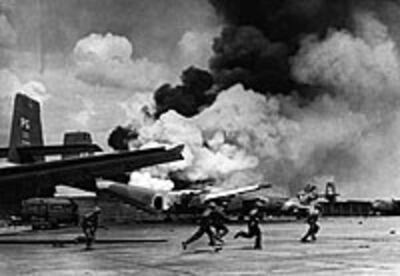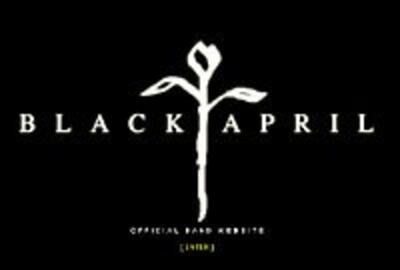
The last U.S. military helicopters leaving rooftops in Saigon, crowds of Vietnamese desperately scaling the U.S. Embassy walls in hope of leaving, advancing Viet Cong troops—some images from Vietnam in 1975 have become etched into world memory.
But for the young Vietnamese Americans who make up the rock band Black April, April 30, 1975 also marked the birth of something new: the Vietnamese diaspora.
“To me, the name of our band, Black April is very appropriate,” band member Peter Nguyen told RFA’s Vietnamese service in a recent interview. “Even though I was born and raised in Ohio and I do not speak Vietnamese, learning about the life of the Vietnamese refugees, I think we should always remember April 1975 and honor the people who sacrificed.”
Millions of Vietnamese left their country after the fall of South Vietnam, seeking resettlement overseas. But their children have grown up as citizens of their host countries, and the road back to their family history and cultural roots can be tortuous.
Black April’s founder, John Frederickson, whose mother is Vietnamese, came to the United States at the age of two with his father, who served in the U.S. military. He said his interest in his heritage was a driving force behind forming the band.
“I was born in Saigon,” Frederickson said. “I don’t know anything about Vietnam...I wanted to learn about Vietnam. But unfortunately, at that time I did not have opportunities to meet with Vietnamese people. So I had to learn by myself,” he told RFA’s Phuong Anh.
“Through books, I self-studied Vietnamese history, and then when I talked to young Vietnamese who were my age, I was so surprised to know that they did not know the things that I had learned from the books.”
“This made me very proud and I thought they should not forget where they came from,” he said.
Frederickson formed the band with the U.S.-born Nguyen, Michael Tran, and Tyler Phan, who was also born in Saigon and came to the United States after 1975.

The band’s sound shows influences from traditional Vietnamese music, mixed with jazz, blues, and rock to create a unique style. Its members draw on diverse musical backgrounds and personal histories.
“I was born in the state of Kansas,” Tran told RFA. “My parents were very active in the Vietnamese community and the church. Since I was little, I loved to sing and was a choir boy.”
Asked about his commitment to the band, Tran replied: “I want to show people, especially foreigners, that Vietnamese people are not able to sing only karaoke. They are singers, singing songs that they composed. “
Peter Nguyen was a singer/songwriter before he heard of Black April through a friend.
“I sang at the nightclubs, coffee shops or festivals which were organized by the Vietnamese community in the local area...Then I joined and love to play with this band,” he said.

But while the band has no trouble booking gigs in mainstream venues, the Vietnamese community in the United States may not be quite ready for Black April.
“Right now, we want to perform for Vietnamese communities but we don’t have an opportunity,” Tyler Phan said. “The reason is that people in the community do not like rock music.”
“We play at the American clubs, the bars or any venue that needs a live band, we play. We hope someday we will play for Vietnamese communities at Tet, [and other] festivals.”
“We want to play in clubs, Vietnamese clubs, nightclubs, but the owners of the clubs are afraid we might bring in fans, gangs or kids that come to cause trouble,” Phan said.
Original reporting in Vietnamese by Phuong Anh. RFA Vietnamese service director: Viet-Long. Produced for the Web in English by Luisetta Mudie.
